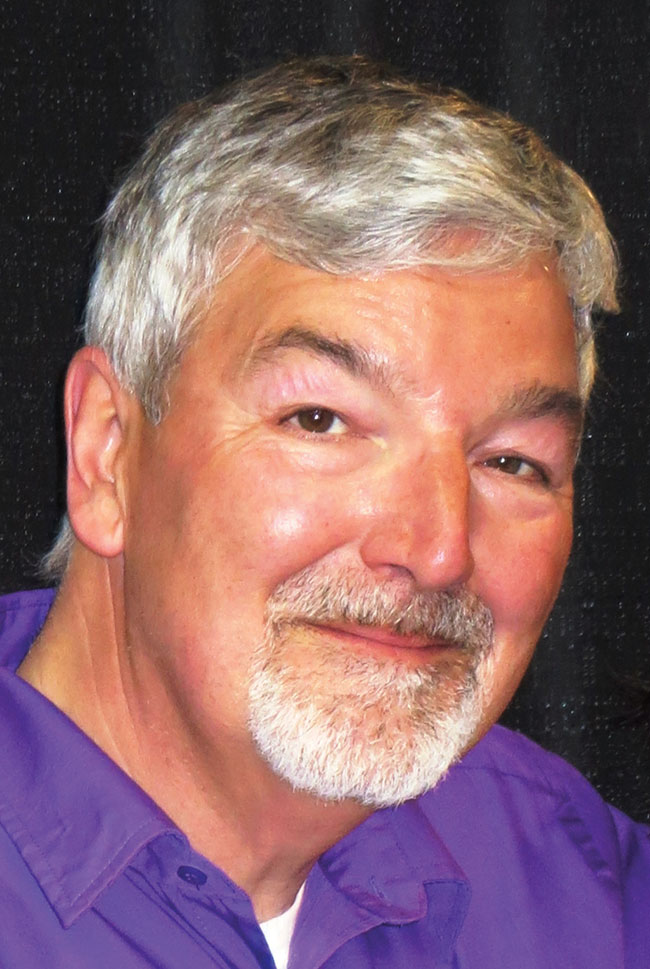
Features
Education
Guest column: A new approach to education
Water resources are not necessarily renewable
April 22, 2022 By Ron Bourdon
 Ron Bourdon
Ron Bourdon Einstein is usually credited for having said: “Insanity is doing the same thing over and over and expecting different results.” (Wilczek, 2015). Of course, that doesn’t make this article “science-based,” and, reading the cited Wilczek article would reveal that there’s a whole lot more to it. Nevertheless, Einstein would surely have been happy as a clam at high tide that Holland College is developing a practical, holistic, innovative “Excellence in Watershed and Aquifer Management Centre,” including education programming that will be genuinely science-based and not just “more of the same thing over and over.”
Ground Water Canada reported (Summer 2019) that more than half of the world’s major aquifers are past sustainability tipping points – past “the point of no return.” We also know that salt contamination (from road de-icing and from “natural” hydrogeological sources) is a worsening problem with a brewing momentum. Water resources are not necessarily renewable unless watersheds and aquifers are given the proper respect, protection, encouragement, and time they need to recharge.
The current trajectory confronts us with “a watershed moment” – “more of the same” is not sustainable… we need “more of the sane.” The time to act is now. The Holland College “Excellence in Watershed and Aquifer Management Centre” intends to be part of the solution.
Much of the excellence of that centre will be attributable to the Andrews family’s remarkable endowment to Holland College of the historic Andrews Mill site – an “urban” property that encompasses a mill pond and a substantial portion of a coastal watershed in the Charlottetown neighbourhood of West Royalty.
Currently in the early development stage, the centre will materialize through a close collaboration among the Andrews, Holland College and P.E.I.’s Watershed Alliance, Watershed Ecologist, and Wildlife Federation. While the eventual inaugural centre and programming is a fluid work in progress, the intention is to recognize that watersheds and aquifers are intrinsically inseparable with their fates particularly intertwined in the presence of saltwater.
P.E.I. is not in the middle of Lake Ontario. Since the world’s mainland coastal regions and far-inland regions are often faced with salt-related risks, an underlying theme of the centre and its academic programs will be water management in the presence of salt or of saline environments.
Currently, the program is intended to embrace many topics, but there will likely be four recurring themes: (1) oceanic islands; (2) mainland coastal settings; (3) in-land saline (salty) hydro-geological settings (anywhere the saltwater table closely underlies relatively shallow freshwater); and (4) contamination of water supplies by “road salt” and other de-icing agents.
This centre’s core programming framework will integrate, epitomize, and expand on the leading edge international scientific consensus respecting ecologically sound watershed and aquifer best management practices (BMPs). It will also build on the traditional and evolving knowledge of indigenous peoples worldwide, regarding the development, protection, and extraction of limited water resources (particularly where saline water is present) and regarding agricultural adaptation to limited water resources. Insights and skills developed from this holistic program approach will equally result in “BMP excellence” and salient innovation for regions that haven’t yet identified saline water or limited water management threats.
We are confident that a broad-based interdisciplinary and cross-cultural approach nurtures the ideal practical and creative environment for students, regardless of whether or not they decide to build on that knowledge and branch off to university studies.
Ron Bourdon is a director of the Cornwall and Area Watershed Group and member of the planning committee for the proposed Holland College program. ronbourdon@gmail.com
Print this page